5 Ways to Get a Free Week’s Stay in Croatia's Dream Destinations
February 24th, 2022 - If you happen to love spending time outdoors and have a few days to spare this spring or summer, Croatia’s national and nature parks offer amazing volunteering opportunities that involve a free week’s stay in some of the most spectacular locations in the country
We prepared a selection of five attractive volunteer programmes that are 5-10 days long and require up to 6 hours of work a day, with free accommodation, meals and transportation provided to participants. English speakers are encouraged to apply, as knowledge of Croatian isn’t a requirement for any of the following roles:
1. Dry Stone Restorer in Mljet National Park
Become a guardian of the past by restoring ancient dry stone walls in Mljet National Park. Traditional dry stone construction is inscribed in the list of intangible cultural assets of the Republic of Croatia, which means you’d literally help restore and preserve precious cultural heritage on Mljet island!
Volunteers will learn how to build and fix up walls, stairways and other dry stone structures. The job also involves clearing existing dry stone structures of vegetation, simple processing of stone using hand tools, and photographing dry stone walls before and after restoration.
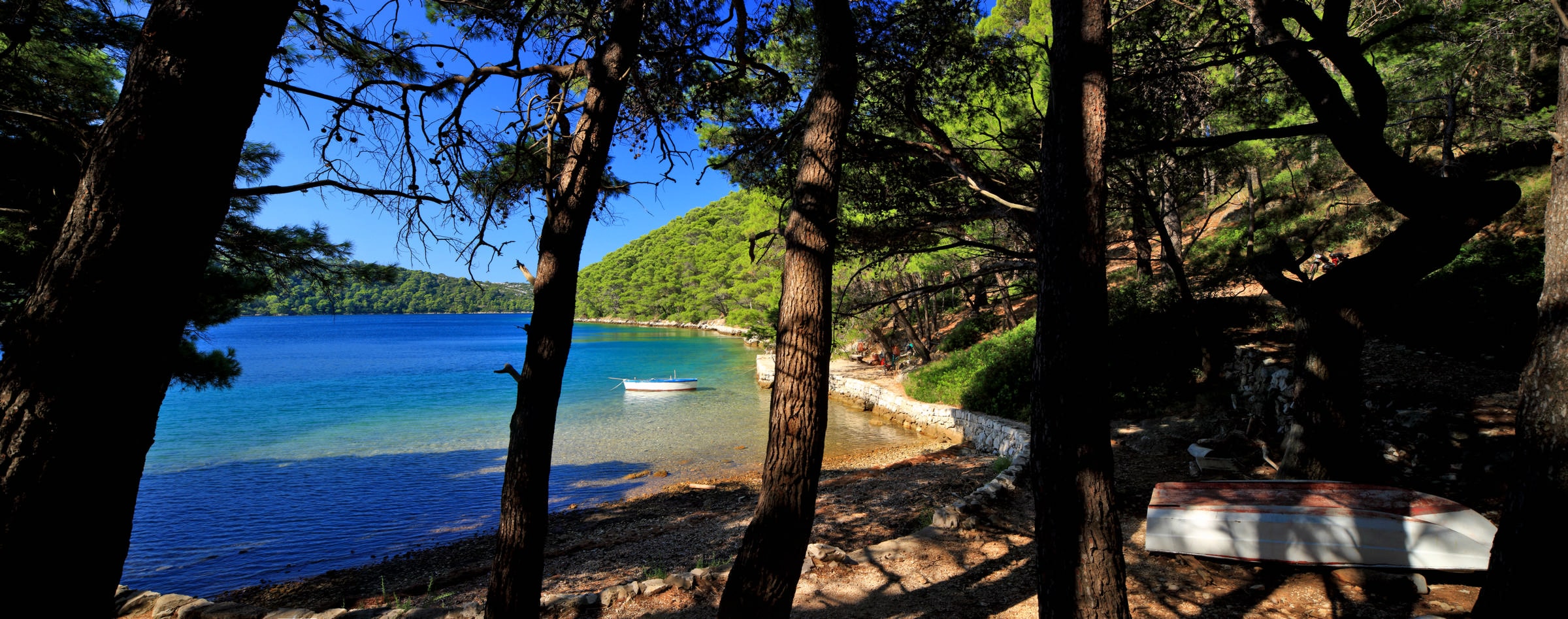 Mljet island / Photo © Mario Romulic
Mljet island / Photo © Mario Romulic
The programme takes place in April and is seven days long, including six days of work and one day off. Volunteers are expected to work six hours a day with a one-hour break, but considering that the physical work involved in this particular programme can be strenuous, the number or working hours can be reduced if needed.
All necessary tools will be provided by the Park. Accommodation is provided free of charge on Mljet island in the Collier building owned by the Park, which has seven rooms equipped with bunk beds, toilets, showers, a kitchen and a living room. Meals are also provided free of charge, with the Park delivering groceries to volunteers or providing free meals at the local hotel.
If stonemasonry isn’t your cup of tea and you’d prefer a less hands-on kind of creative work, may we suggest another volunteer programme on Mljet island:
2. Photo Amateur in Mljet National Park
A dream come true for anyone who loves island hopping and snapping pics of stunning landscapes (don’t we all?), this programme involves photographing the scenery and events in Mljet National Park in the period between April and June.
Depending on the time of year, volunteers will be required to photograph various locations, events and activities on Mljet island using their own gear. You’ll be capturing the island’s flora and fauna, cultural monuments and landmarks, historic sites, enchanting landscapes and fun summer events.
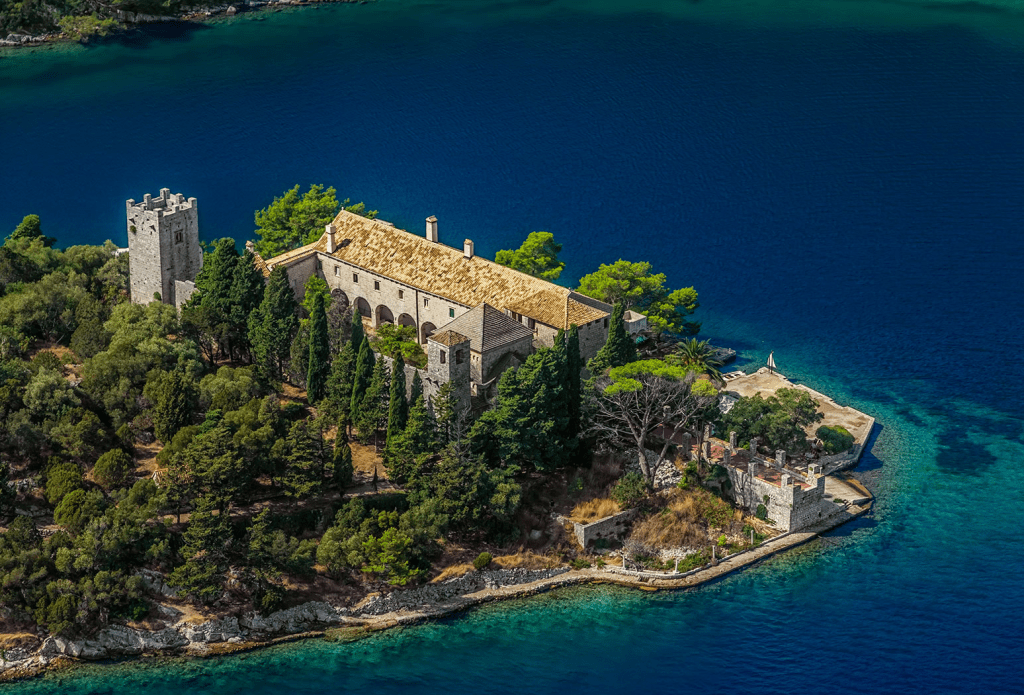 Mljet National Park / Photo: volonteri.parkovihrvatske.hr
Mljet National Park / Photo: volonteri.parkovihrvatske.hr
Those who choose to participate in this particular programme will sign a statement of the assignment of the photos to Mljet National Park. You’ll have to submit the photos shortly after the programme is over, and can look forward to seeing them featured in the Park’s publications in Croatia and abroad.
A minimum of one DSLR camera with a lens is required to partake in this programme.
You’ll have plenty of time to explore the island on your own time, and there’s no shortage of things to do: there are over 40 kilometres of hiking and cycling trails, you can rent a kayak or canoe to explore the saltwater lakes on Mljet, or take diving lessons with a certified instructor.
For all Mljet-based programmes, volunteers are to bear the cost of travel to Mljet island, and the Park will provide transport from the ferry port on Mljet to the place of accommodation.
3. Gull Catcher in Kornati National Park
Are you a fan of the great outdoors and love being in close contact with wildlife? Consider becoming a seagull catcher in Kornati National Park. Don't worry, you'll be releasing them too!
You’ll be joining the Park’s experts as they band and monitor Caspian gulls in the stunning Kornati archipelago, specifically on a few islands where seagulls are known to nest.
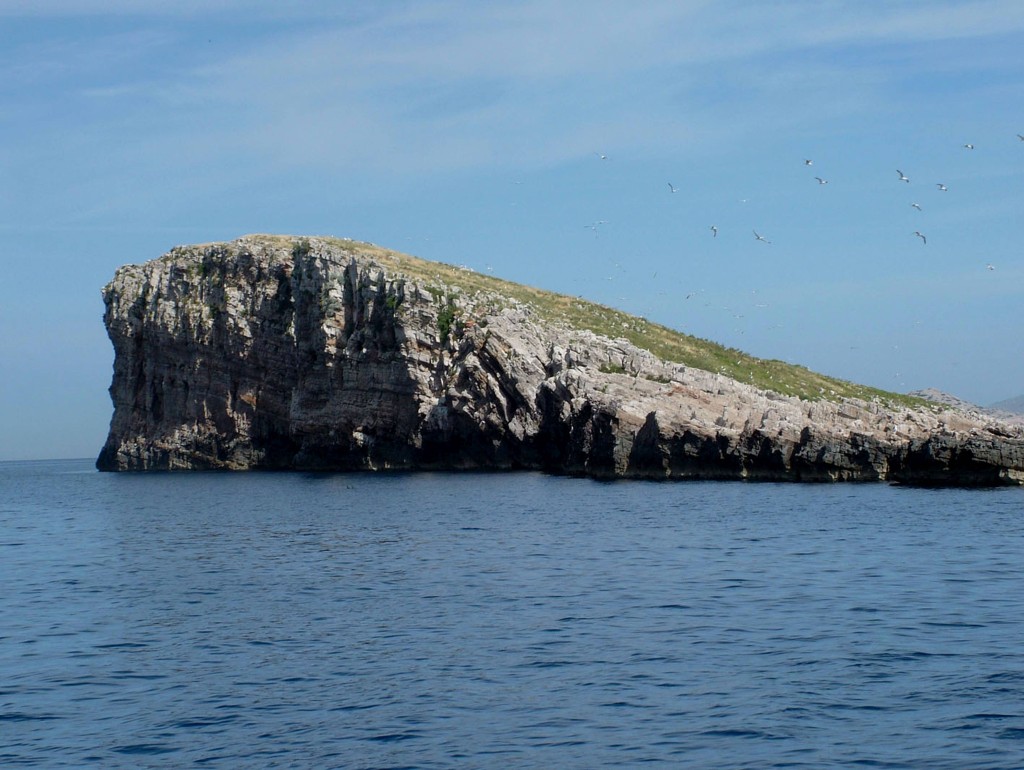 Kornati National Park / Photo: volonteri.parkovihrvatske.hr
Kornati National Park / Photo: volonteri.parkovihrvatske.hr
Do you dare to catch a young gull with your bare hands? If you do, you get to name the bird and take notes as it gets banded by a qualified employee of the Park. Banding and monitoring allows experts to track the behaviour and habitats of seagulls in order to collect data used to ensure protection of the species.
Volunteers will receive training prior to starting work and will be supervised by the Park staff. The programme takes place in May and June lasts about ten days, with volunteers expected to work seven hours a day.
Accommodation is provided and free, and in this case, it’s pretty amazing: you’ll be staying on a sailboat owned by the National Park Kornati, fully furnished and featuring 3 cabins, 6 beds, a living room, kitchen and toilet.
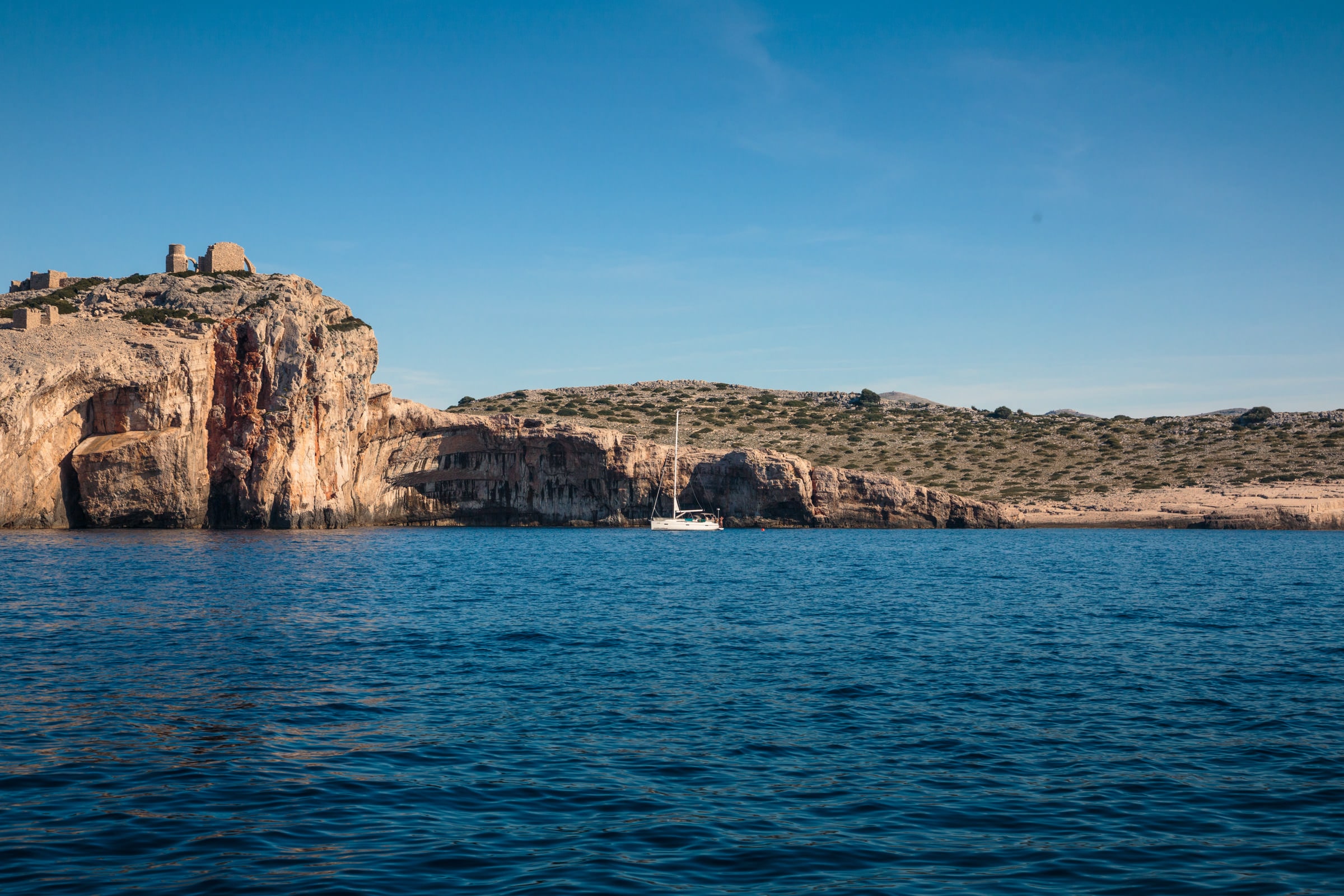 Kornati National Park / Photo © Mario Romulic
Kornati National Park / Photo © Mario Romulic
Groceries are provided free of charge, and volunteers can either prepare meals on their own or seek the help of the volunteer manager.
Volunteers have to arrange transportation to Murter island, while further transport from Murter and within the Park area is organised by the Park and free of charge.
4. Traditional Gardener in Lonjsko Polje Nature Park
Lonjsko Polje (Lonja Field) is the largest protected wetland in Croatia, located approximately 70 km south-east of Zagreb.
If you have a green thumb and don’t mind getting your hands dirty, you’d be a great fit for a traditional gardener in Lonjsko Polje Nature Park. You’d help clean up the untended plots in the Park and plant new seedlings around traditional wooden houses in the villages of Krapje and Čigoč - think of it as traditional landscape design!
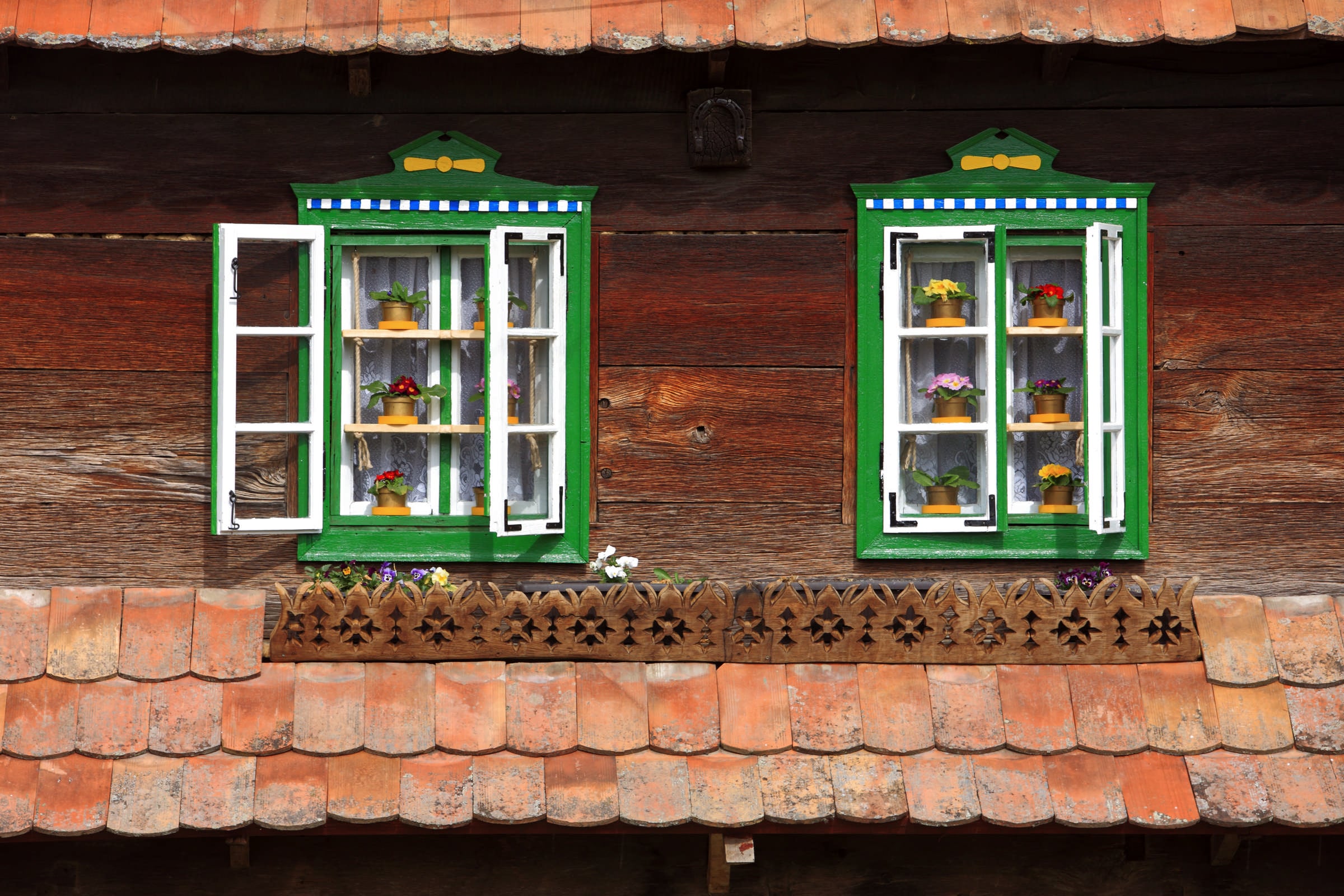 Lonjsko Polje Nature Park / Photo © Mario Romulic
Lonjsko Polje Nature Park / Photo © Mario Romulic
The programme takes place in April and lasts five days, six hours of work each.
Accommodation is provided free of charge in a dormitory in Krapje. The facility is equipped with a small kitchen and a bathroom, and has central heating. As volunteers will be sleeping on spare beds, they are required to bring their own sleeping bags. Groceries are provided free of charge, and bikes and vehicles are available to use for transportation within the Park.
5. Guardian of Plant Biodiversity in Brijuni National Park
There’s not much need for gardening on Brijuni islands - domestic wildlife and imported species such as mountain zebras and mouflons take care of landscaping by nibbling away at the grass at all times.
There’s a single item on the menu that the animals don’t like: a spiky flower called Spanish oyster thistle. Since the wildlife practically mows the lawn, it removes all natural obstacles that would prevent the spread of the Spanish oyster thistle, allowing it to take over whole areas that would otherwise be home to other plants.
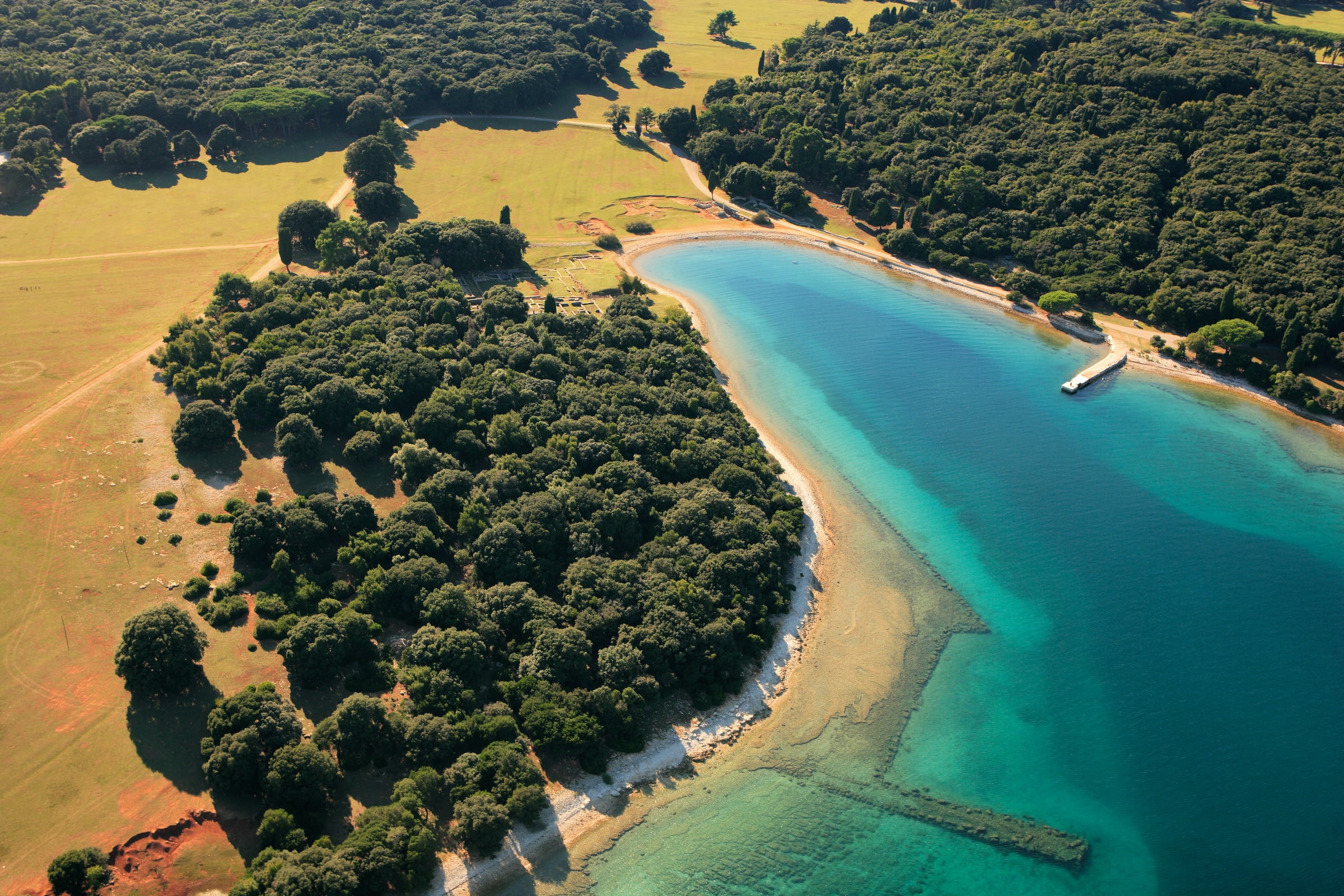 Brijuni islands / Photo © Mario Romulic
Brijuni islands / Photo © Mario Romulic
As a volunteer, you’ll help maintain the biodiversity on the meadows of Veliki Brijun island by keeping the pesky thistle in check. You’ll be removing the aggressive plant using provided gardening tools.
Volunteers are needed in the month of May and are required to put in 6 hours of work daily. Beyond that, the islands are yours to enjoy: explore the Safari and Ethno Parks, rent golf equipment and play on the golf course opened in 1922, or go for a swim at one of Brijuni’s pristine beaches.
The Brijuni are also a nice jumping off point for trips in Istria. Discover the ancient Roman monuments in Pula which is located only 7km away from Fažana, or visit the picture-perfect city of Rovinj.
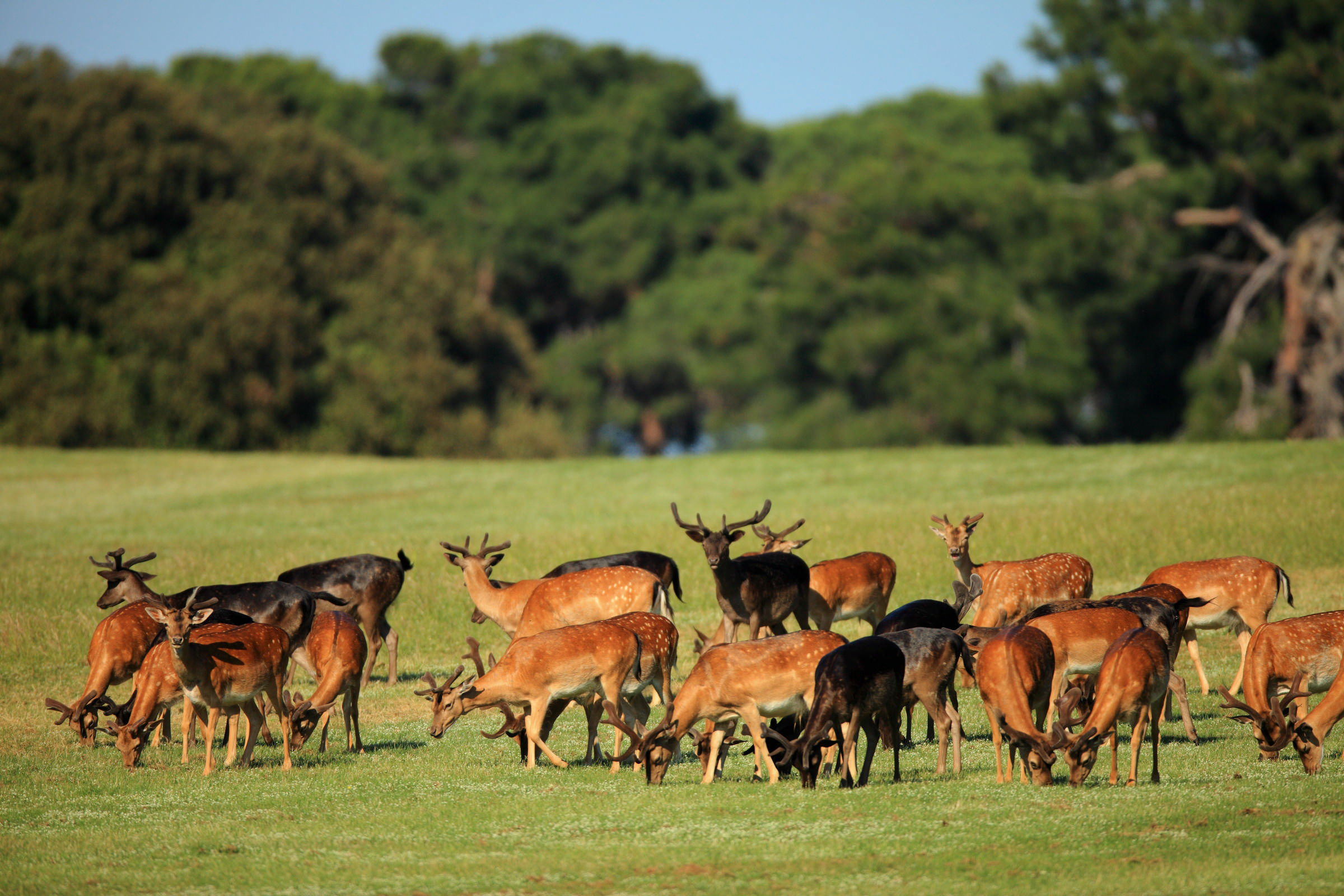 Wildlife on Brijuni islands / Photo © Mario Romulic
Wildlife on Brijuni islands / Photo © Mario Romulic
Accommodation is provided in one of the apartment buildings on Veliki Brijun island that are owned by the Park. Apartments are equipped with toilets, bathrooms, and a kitchen; rooms are shared with one or two other volunteers.
Groceries are provided free of charge and delivered to the apartment building, and one meal a day is also provided free of charge in the workers’ restaurant.
Volunteers have to arrange transport to Fažana town, and boat transportation to and from Veliki Brijun island is organised by the Park free of charge for the duration of the volunteer programme.
***
Applicants who don’t speak Croatian must be able to speak English in order to communicate with the park authorities and volunteer coordinators.
You can find more information about these and other volunteer programmes on the website Volunteer in Parks of Croatia.
Looking to apply? Fill out this form (in English), pick a programme you like and specify when you're free to participate, and the relevant programme coordinators will get back to you.
Please note that some of the programmes might not be accepting applications for the time being, or might be otherwise affected by epidemiological measures.
Check out our comprehensive Guide to the Nature and National Parks of Croatia.
Kornati National Park Finalist for 2021 Best European Filming Location
Kornati islands are among the finalists competing for the best European filming location of the year!
The European Film Commission Network (EUFCN) announced the five finalists competing for the Location Award 2021. In the fifth instalment of the annual competition, Kornati National Park made the cut as one of the filming locations for the award-winning Croatian film Murina.
Each year, all EUFCN member film commissions have a chance to nominate one location from a film or a TV series filmed in their country; the list of submissions is then reviewed by the Location Award Jury who select the top five locations to compete for the title. EUFCN state that the jury looks for locations that have a significant role in the story and innovative use in the audiovisual product.
Here’s a full list of this year’s finalists:
Berlin, Germany: The Queen’s Gambit
Cahir Castle, Ireland: The Green Knight
Malaga, Spain: The Crown (Season 4)
Stadlandet, Norway: Dune
Kornati National Park, Croatia: Murina
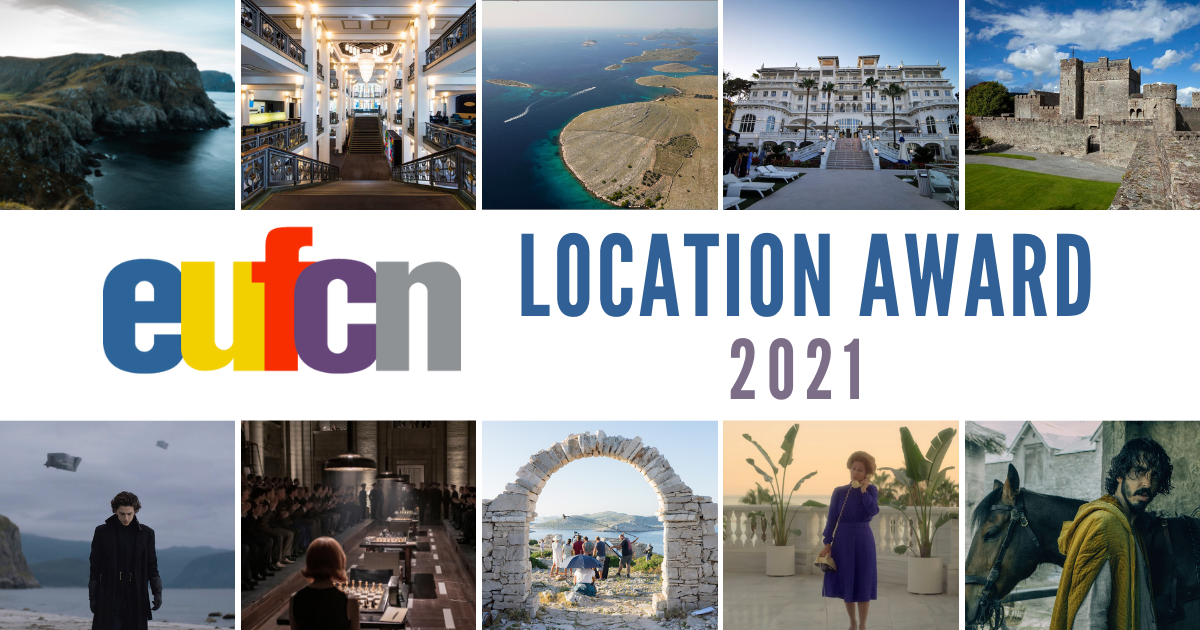 EUFCN - European Film Commissions Network
EUFCN - European Film Commissions Network
Voting is open to the general public - you can cast your vote until January 31st, 2022 at the EUFCN Location Award page. If you need an incentive, let it be known that one lucky voter will be randomly selected and awarded a trip to the winning location!
Murina was directed by Antoneta Alamat Kusijanović and stars Gracija Filipović, Leon Lučev, Danica Ćurčić and Cliff Curtis.
The Dubrovnik-born director’s first feature film won quite a few international accolades this year, most notably the prestigious Camera d’or award at the Cannes Film Festival in July. Murina had its Croatian debut at the Pula Film Festival where it won three awards: the Golden Arena for Best Supporting Actress (Danica Ćurčić), the Breza Award for Best Debutant (Antoneta Alamat Kusijanović), and the Golden Gate of Pula Audience Award for best film in the Croatian programme.
Apart from Kornati, the filming of Murina also took place on Hvar and Koločep island.
For everything you need to know about filming in Croatia, follow TCN's dedicated page.
40 Environmentally Friendly Anchorages Set Up in Kornati National Park
November 17, 2021 - With the long-term objective of protecting the sea surface and preserving Posidonia, the Sunce Association through the SASPAS project has installed 40 environmentally friendly anchorages in four bays of the Kornati National Park using a technique that will not negatively impact the environment.
During July 2021, through a project by Interreg Italy - Croatia SASPAS within the Kornati National Park, a total of 40 environmentally friendly anchorages were set up in the bays: Kravljačica, Strižnja, Šipnate, and Tomasovac, reports HrTurizam.hr. In each of these bays, 10 anchorages have been set up for vessels up to 16 meters long, according to the Association for Nature, Environment and Sustainable Development Sunce.
According to the Association, there is a buoy at each anchor point, and all buoys were set up using the "Earth Anchor" system - methods of drilling through sand and sea sediment into the rock surface where the anchors were shot directly into the seabed. Given the nature of the setup, the impact on marine sediment is short-lived and negligible.
“During the installation, and later the exploitation of the anchorage, there is no contact with the vegetation cover, which is extremely important for the preservation of sea flowers and why this anchor system is more environmentally friendly compared to the installation of concrete blocks. Each anchorage consists of a circular sea area with an anchor bolt in the center, as well as an anchor buoy with a final mooring loop of anchor rope next to it. It is important to emphasize that this solution was chosen to ensure that the anchor chain does not touch the seabed even during the lowest water level. The anchor mooring works in such a way that the vessel is moored to the anchor rope and depending on the influence of the wind on the vessel, it rotates around the anchor buoy.'', states the Sunce Association.
The installation of 40 environmentally friendly anchorages is one of the goals of the SASPAS project, which included a campaign aimed at raising public awareness, especially boaters, about the importance of protection and preservation of sea flowers, with special emphasis on Posidonia.
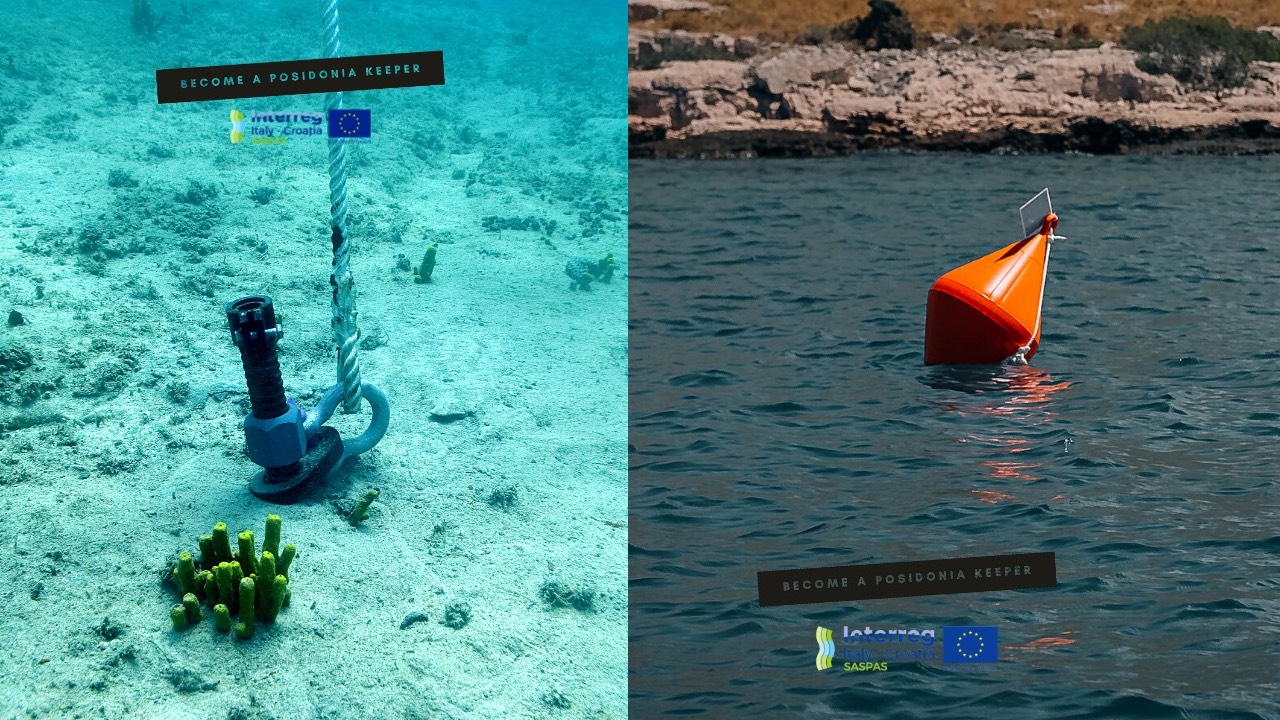
Photo: Sunce Association
A special focus was on the preservation of Posidonia (Posidonia oceanica), a strictly protected species. Posedonia is a sea flower and endemic to the Mediterranean Sea, and it is the Posidonia meadows that are considered to be the most important ecosystem in the Mediterranean because they are oxygen factories and carbon dioxide stores. Marine organisms, primarily fish, seek shelter among their leaves, spawn and reproduce. Despite their prevalence, they are endangered by numerous human actions, and the biggest threat is precisely free anchoring.
With the successful installation of such an anchor system, as part of the SASPAS project, the long-term goal of the Kornati National Park is to establish anchorages in all 19 bays, as well as to completely ban free anchoring in the national park, has begun.
The Sunce Association was founded in 1998 by a group of Split intellectuals to respond to society's growing need for an independent and professional body to offer solutions to environmental and nature protection issues. Today, the Association is present at the national and international level as one of the leading organizations for nature and environmental protection in Croatia.
For more, make sure to check out our dedicated lifestyle section.
VIDEO: Drone Footage Shows Cycling On Ugljan Island, A Blissful Paradise
August 4, 2020 - Get a bird’s eye view of Zadar’s closest facing neighbour with this new drone footage of cycling on Ugljan island
Even in the height of summer, Croatia can offer total escape. The crowds and city streets have been all but forgotten by Andrej Šimunaj and his friends, who are currently enjoying cycling on Ugljan island. A new video they shot using a drone offers an incredible perspective of the peace, tranquillity and beauty of this little-discussed island.
The footage shows the visitors passing through peaceful pine forests as they journey to the vantage point of Venetian-built St. Michael’s Fort, high above the town of Preko and just of the edge of the Kornati National Park. From there, the cyclists roll downhill to a small cove named Prtljug, which holds the incredibly clear turquoise seas so beloved by visitors to the Croatian coast.
Cycling On Ugljan Island
VIDEO: Unusual Fight Between Seagull and Octopus in NP Kornati
A seagull tried to make an octopus his dinner, but the octopus wasn't in the mood. This unusual footage from NP Kornati showcases the struggle between bird and would-be prey.
Along Croatia's coast or on its many islands, you're likely to witness battles and very loud ''arguments'' by street cats wanting to get hold of the last fish, or maybe even witness seagulls falling out with each other, what you don't often see however is a showdown between a seagull and his ''almost dinner'', an octopus who simply had no plans to be a meal that day.
As Morski writes on the 18th of April, 2019, after some rather surprising footage from far away in Australia, where a seagull's attempt to make a grumpy octopus a meal turned very sour for the opportunistic sea bird indeed, another almost identical scene has been caught on camera, but this time much closer to home, right here in Croatia, from the beautiful NP Kornati in the Zadar region.
The video was initially taken back in October 2018, and author of the video and witness to this rather bizarre fight, Jure Jerat, says the rather unlucky seagull managed to come out of the fight a little bit better off than the Australian seagull did when he attempted the same ''assault'' on an octopus that just wasn't having it.
While we by no means endorse any type of blood sport here at TCN, this does make for interesting viewing, it certainly isn't something you see on a daily basis and it's difficult to say who we'd put our money on! Have a look for yourself and see who comes out on top in this extremely unusual argument between two very different species at Croatia's beautiful NP Kornati.
Make sure to follow our dedicated lifestyle page for much more.
Ecotourism Experts Test New Tourist Programme for Kornati Islands
ZAGREB, October 8, 2018 - International ecotourism specialists have tested a new tourist programme for Kornati National Park, which is based on tradition, nature and authentic experience, the national park's management said.
How Much Do You Really Know About The Kornati Islands?
Ever been to the Kornati islands?
Troubles in Paradise: Kornati Residents Voice Their Concerns and Demands
April 19, 2018 - The population of the Kornati archipelago continues to disagree with the way things are managed in the National Park
Kornati Revival: Protection of Dry Stone Walls and Olive Groves Underway
A major development project has been set in motion in the Kornati archipelago
Kornati Clean-up Action: Protecting Biodiversity of Adriatic Sea
Waste will be removed from the Kornati seabed.


